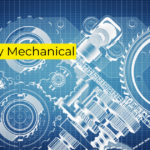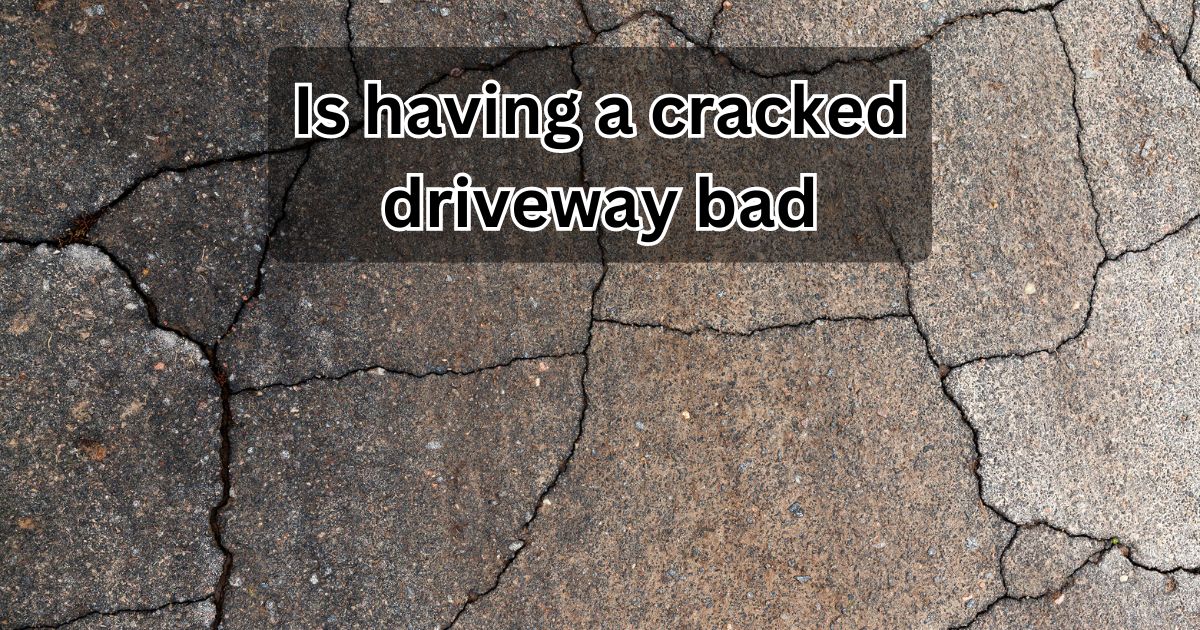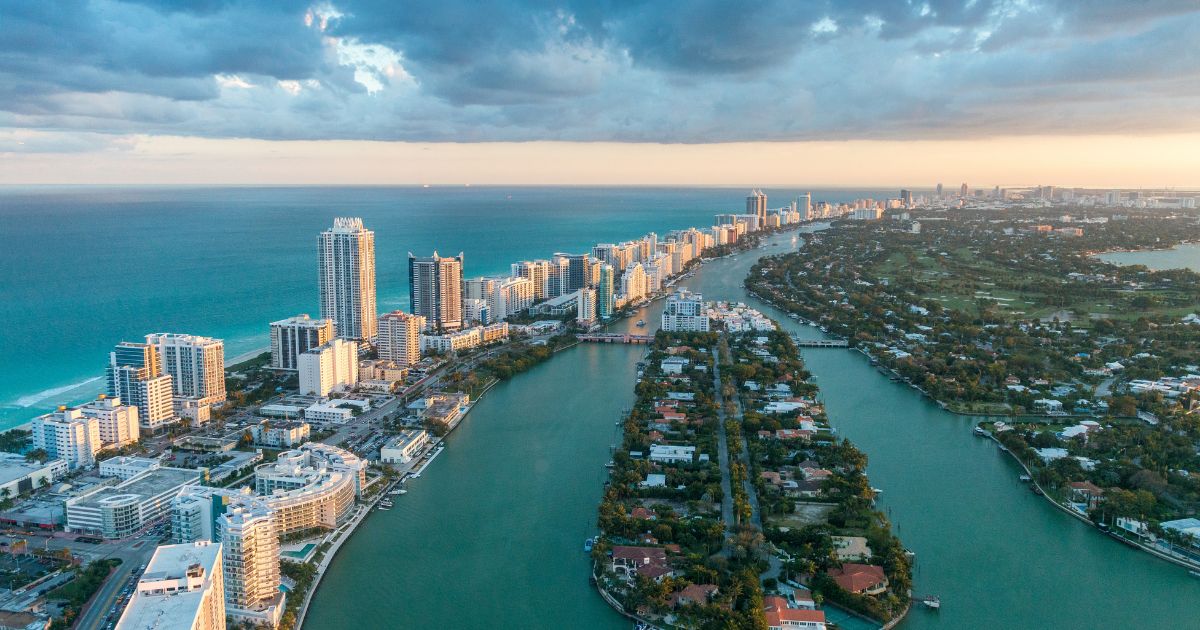A driveway is often the first thing visitors notice when approaching a home, playing a crucial role in the overall aesthetic and functionality of the property. Not only does it serve as a practical space for parking vehicles, but it also contributes to the home’s curb appeal. A well-maintained driveway reflects positively on the homeowner, signaling attention to detail and care for the property. On the other hand, a driveway in disrepair, riddled with cracks and imperfections, can detract from the overall appearance of the home. Is having a cracked driveway bad? Beyond aesthetics, the condition of a driveway can affect safety and property value, making it a vital aspect of home maintenance.
The Common Issue of Cracked Driveways
Cracked driveways are a common issue faced by many homeowners. Over time, even the most robust driveways can develop cracks due to various factors such as weather conditions, soil movement, or the natural aging process of the materials. While some cracks are minor and merely cosmetic, others can be more severe, leading to structural problems if not addressed promptly. Understanding the causes and implications of these cracks is essential in determining the best course of action for repair or replacement.
Why This Topic Matters: Is Having a Cracked Driveway Bad?
So, is having a cracked driveway bad? This question is more complex than it may seem. While a few minor cracks may not pose an immediate threat, larger or more numerous cracks can indicate underlying issues that need attention. A cracked driveway can lead to safety hazards, reduce property value, and potentially cause more extensive damage to your home’s foundation. This article explores the various aspects of cracked driveways, from causes and types to repair solutions and preventative measures, providing homeowners with a comprehensive guide to maintaining a safe and attractive driveway.
Also Read: Ceramic vs Stainless Steel Cookware
What Causes Driveways to Crack?
Natural Wear and Tear
Over time, all driveways experience natural wear and tear. Daily use, combined with exposure to the elements, can cause the materials to break down gradually. This is especially true for driveways made from concrete or asphalt, which are prone to cracking as they age. The constant pressure from vehicles, coupled with changes in temperature and moisture levels, can lead to the formation of cracks. While this type of wear and tear is inevitable, regular maintenance can help slow the process and extend the life of the driveway.
Weather Conditions
Weather conditions play a significant role in the formation of cracks in driveways. In regions with extreme temperature fluctuations, the expansion and contraction of materials can lead to cracking. For example, during the winter, water can seep into small cracks and freeze, causing the cracks to widen. Similarly, prolonged exposure to heat can cause asphalt to soften and crack. Additionally, heavy rainfall can lead to erosion beneath the driveway, weakening the foundation and leading to cracks on the surface.
Poor Installation Techniques
Poor installation techniques are a common cause of driveway cracks. If the driveway was not properly installed, it might not be able to withstand the stresses it encounters over time. For instance, inadequate compaction of the base material can lead to settling and the formation of cracks. Similarly, improper mixing or application of concrete or asphalt can result in weak spots that are prone to cracking. Ensuring that the driveway is installed by a qualified professional can help prevent these issues from arising.
Heavy Vehicle Traffic
Heavy vehicle traffic can also contribute to the formation of cracks in driveways. While most residential driveways are designed to support the weight of standard vehicles, they may not be able to handle the pressure from larger, heavier vehicles such as trucks or RVs. The repeated stress from these vehicles can cause the materials to crack, especially if the driveway was not designed with such loads in mind. Homeowners with heavy vehicles should consider reinforcing their driveways or parking in areas with more robust surfaces.
Soil Shifting and Settling
Soil shifting and settling are natural processes that can lead to driveway cracks. Over time, the soil beneath the driveway can move or settle, causing the surface to crack. This is particularly common in areas with expansive clay soils, which can expand and contract with changes in moisture levels. Additionally, tree roots growing beneath the driveway can push up the surface, leading to cracks. While some degree of soil movement is unavoidable, proper site preparation and the use of appropriate materials can help minimize the risk of cracks.
Types of Cracks in Driveways
Hairline Cracks
Hairline cracks are the most common type of cracks in driveways and are usually the result of natural shrinkage as the concrete or asphalt cures. These cracks are typically very narrow and shallow, posing little risk to the structural integrity of the driveway. While they may not require immediate repair, hairline cracks can allow water to seep into the surface, leading to more significant problems over time if left unaddressed. Sealing hairline cracks can help prevent water infiltration and extend the life of the driveway.
Shrinkage Cracks
Shrinkage cracks occur when the concrete or asphalt loses moisture too quickly, causing the material to contract and crack. These cracks are often seen in newly poured driveways and are a result of improper curing techniques. While shrinkage cracks are not typically a structural concern, they can be unsightly and may worsen over time. Addressing these cracks early on can help maintain the appearance of the driveway and prevent further damage.
Structural Cracks
Structural cracks are more severe than hairline or shrinkage cracks and can indicate underlying issues with the driveway’s foundation. These cracks are usually wider and deeper, often extending through the entire thickness of the driveway. Structural cracks can result from poor installation, soil movement, or excessive loads. If left untreated, structural cracks can lead to more extensive damage, such as sinking or heaving of the driveway surface. Repairing structural cracks typically requires professional intervention to ensure the underlying issues are addressed.
Alligator Cracks
Alligator cracks, also known as fatigue cracks, are characterized by a network of interconnected cracks that resemble the skin of an alligator. These cracks are typically caused by repeated stress on the driveway surface, such as from heavy vehicles or frequent traffic. Alligator cracks are a sign of significant deterioration and indicate that the driveway may need to be resurfaced or replaced. Addressing these cracks promptly can help prevent further damage and extend the life of the driveway.
Edge Cracks
Edge cracks are commonly found along the edges of driveways and are often caused by a lack of support at the sides. These cracks can result from poor installation, erosion, or vehicle traffic that is too close to the edges. Edge cracks can compromise the stability of the driveway and may lead to further cracking if not repaired. Reinforcing the edges of the driveway and addressing any underlying issues can help prevent edge cracks from spreading.
Is Having a Cracked Driveway Bad? The Immediate Concerns
Aesthetic Deterioration
One of the most immediate concerns with a cracked driveway is the aesthetic deterioration it causes. A driveway full of cracks can make an otherwise well-maintained property look neglected and unkempt. This visual impact is especially important for homeowners who are considering selling their property, as curb appeal plays a significant role in attracting potential buyers. A cracked driveway can create a negative first impression, potentially lowering the perceived value of the home.
Safety Hazards
Cracked driveways can also pose safety hazards, particularly if the cracks are large or uneven. These cracks can create tripping hazards for pedestrians, especially for children, the elderly, or anyone with mobility issues. Additionally, cracks can become more dangerous in icy or wet conditions, increasing the risk of slips and falls. Addressing these cracks promptly can help reduce the risk of accidents and ensure that the driveway remains safe for use.
Impact on Property Value
The condition of a driveway can have a direct impact on property value. A cracked driveway can be a red flag for potential buyers, signaling that the property may not have been properly maintained. This can lead to lower offers or even discourage buyers from considering the property altogether. On the other hand, a well-maintained driveway can enhance the overall appearance of the home, contributing to a higher property value. Investing in driveway repairs can be a smart way to protect your home’s value and make a positive impression on potential buyers.
Potential for Further Damage
Leaving a cracked driveway unaddressed can lead to further damage over time. Is having a cracked driveway bad? Small cracks can widen and deepen, eventually compromising the structural integrity of the driveway. In addition, water can seep into the cracks, leading to erosion and weakening of the foundation. This can result in more extensive and costly repairs down the line. Addressing cracks early on can help prevent further damage and prolong the life of the driveway, saving homeowners time and money in the long run.
Long-Term Consequences of Ignoring Cracks
Water Infiltration and Erosion
One of the most significant long-term consequences of ignoring cracks in a driveway is water infiltration and erosion. When water seeps into cracks, it can weaken the underlying foundation, leading to erosion and further damage. Over time, this can cause the driveway to sink, shift, or develop more extensive cracks. In regions with freezing temperatures, water can freeze and expand within the cracks, exacerbating the damage. Addressing cracks promptly can help prevent water infiltration and protect the driveway’s foundation.
Expanding Cracks Over Time
Cracks in a driveway are unlikely to remain static; they often expand over time if left untreated. This expansion can be accelerated by factors such as temperature fluctuations, moisture, and heavy vehicle traffic. As cracks widen and deepen, they can compromise the structural integrity of the driveway, making it more susceptible to further damage. Preventing the expansion of cracks requires timely intervention and appropriate repair techniques.
Structural Compromise of the Driveway
Ignoring cracks in a driveway can eventually lead to structural compromise. As cracks expand and the underlying foundation deteriorates, the driveway may begin to sink, heave, or develop potholes. This not only affects the appearance and functionality of the driveway but can also create significant safety hazards. In some cases, the damage may become so severe that the entire driveway needs to be replaced. Regular maintenance and prompt repair of cracks can help prevent structural compromise and extend the life of the driveway.
Impact on Home’s Foundation
In some cases, cracks in a driveway can impact the home’s foundation. This is particularly true if the cracks are caused by soil movement or erosion beneath the driveway. As the soil shifts, it can affect the stability of the home’s foundation, leading to cracks in the walls or floors of the house. Addressing driveway cracks early on can help prevent these issues and protect the integrity of the home’s foundation.
Repairing a Cracked Driveway
Assessing the Severity of the Cracks
The first step in repairing a cracked driveway is assessing the severity of the cracks. Not all cracks require the same level of intervention; some may be minor and easily repaired, while others may indicate more significant structural issues. Hairline cracks, for example, can often be repaired with a simple sealant, while larger, deeper cracks may require more extensive repairs. It’s essential to accurately assess the severity of the cracks to determine the appropriate repair method.
DIY Repair Options
For minor cracks, DIY repair options can be a cost-effective solution. Products such as crack fillers, sealants, and patching compounds are readily available at most home improvement stores and can be used to repair small cracks. These products are typically easy to apply and can help prevent further damage by sealing the cracks and preventing water infiltration. However, it’s essential to follow the manufacturer’s instructions carefully and ensure that the repair is done correctly to achieve the best results.
Professional Repair Services
For more severe cracks or if the homeowner is unsure about the best repair method, professional repair services may be the best option. Professional contractors have the expertise and equipment to assess the damage accurately and perform the necessary repairs. They can also provide more permanent solutions, such as resurfacing the driveway or installing a new layer of asphalt or concrete. While professional repairs may be more expensive than DIY options, they can ensure that the driveway is repaired correctly and that the underlying issues are addressed.
When to Consider Replacement
In some cases, repairing a cracked driveway may not be sufficient, and replacement may be the best option. This is particularly true if the driveway has extensive or deep cracks, structural damage, or if the underlying foundation has been compromised. Replacement may also be necessary if the driveway is nearing the end of its lifespan and has developed multiple cracks or other signs of deterioration. A professional contractor can help determine whether replacement is the best course of action and provide guidance on the best materials and design for the new driveway.
Preventative Measures to Avoid Driveway Cracks
Regular Maintenance
Regular maintenance is key to preventing driveway cracks and extending the life of the driveway. This includes regularly cleaning the driveway to remove debris and checking for any signs of wear and tear. Sealing the driveway every few years can also help protect it from the elements and prevent cracks from forming. Additionally, addressing any minor cracks as soon as they appear can prevent them from expanding and causing more significant damage. This proactive approach is essential when considering Is Having a Cracked Driveway Bad, as it helps mitigate the risks associated with deteriorating driveways and ensures the longevity and safety of the surface.
Proper Installation Techniques
Proper installation techniques are critical to preventing driveway cracks. Ensuring that the driveway is installed by a qualified professional who follows industry standards can help prevent many common issues, such as poor compaction, inadequate drainage, and improper curing. Choosing the right materials for the driveway, based on the climate and expected use, can also help prevent cracks from forming. Investing in quality installation can save homeowners time and money on repairs in the long run.
Managing Heavy Vehicle Traffic
To prevent driveway cracks, homeowners should manage heavy vehicle traffic carefully. This may involve parking larger vehicles, such as trucks or RVs, on more robust surfaces, such as reinforced concrete pads or gravel areas, rather than on the driveway. Homeowners can also distribute the weight more evenly by using multiple parking spots or parking vehicles in different areas of the driveway. Reducing the stress on the driveway surface can help prevent cracks and extend the life of the driveway.
Addressing Drainage Issues
Proper drainage is essential in preventing driveway cracks. Water that accumulates on the surface or seeps into the foundation can lead to erosion and cracks over time. Homeowners should ensure that the driveway is properly graded to direct water away from the surface and that any drainage systems, such as gutters or French drains, are functioning correctly. Regularly inspecting and maintaining these systems can help prevent water-related damage and keep the driveway in good condition.
The Cost of Ignoring Driveway Cracks
Increased Repair Costs
Ignoring driveway cracks can lead to increased repair costs over time. Small cracks that could have been easily repaired with a sealant can expand and become more severe, requiring more extensive and costly repairs. In some cases, the damage may become so severe that the entire driveway needs to be replaced, which can be a significant expense. Addressing cracks early on can help homeowners avoid these higher costs and keep their driveways in good condition.
Decreased Property Value
As mentioned earlier, a cracked driveway can negatively impact property value. Potential buyers may be deterred by the sight of a cracked driveway, leading to lower offers or even a lack of interest in the property. This can result in a decreased property value, making it more difficult for homeowners to sell their homes at a desirable price. Investing in driveway repairs can help maintain property value and make the home more attractive to potential buyers.
Potential Legal Liability
In some cases, homeowners may face legal liability if someone is injured due to a cracked driveway. For example, if a visitor trips and falls on a large crack, the homeowner may be held liable for any resulting injuries. This can lead to costly legal fees and potential settlements. Addressing cracks promptly can help reduce the risk of accidents and protect homeowners from legal liability.
When to Seek Professional Help
Signs of Serious Damage
Homeowners should seek professional help if they notice signs of serious damage in their driveways, such as large, deep cracks, sinking or heaving, or widespread deterioration. These issues can indicate underlying problems with the driveway’s foundation or structure, which may require professional intervention to repair. A professional contractor can assess the damage and recommend the best course of action, whether it be repairs or replacement.
Extensive Cracking
If the driveway has extensive cracking, with multiple cracks spread across the surface, it may be time to seek professional help. Extensive cracking can indicate that the driveway is nearing the end of its lifespan and may need to be resurfaced or replaced. A professional can evaluate the extent of the damage and provide guidance on the best solution to restore the driveway’s appearance and functionality.
Repeated Repairs
If a homeowner has made repeated repairs to their driveway but the cracks keep returning, it may be time to consult a professional. This could indicate that there are underlying issues that need to be addressed, such as poor installation, drainage problems, or soil movement. A professional contractor can identify the root cause of the problem and recommend a more permanent solution.
Understanding the Cost-Benefit of Professional Services
While professional repair services may be more expensive than DIY options, they often provide a better return on investment in the long run. Professional repairs are more likely to be done correctly and last longer, reducing the need for repeated repairs and minimizing the risk of further damage. Additionally, professional services can address underlying issues that DIY repairs may not be able to fix, ensuring that the driveway remains in good condition for years to come.
Conclusion
In conclusion, is having a cracked driveway bad? Yes, it can be problematic for various reasons, from aesthetic concerns to safety hazards and potential property value impacts. The causes of driveway cracks are numerous, ranging from natural wear and tear to poor installation techniques, weather conditions, heavy vehicle traffic, and soil movement. Different types of cracks, such as hairline cracks, structural cracks, and alligator cracks, require different levels of attention and repair.
Regular maintenance and prompt repair of cracks are essential in preventing more significant damage and extending the life of the driveway. Homeowners should assess the severity of cracks, consider DIY repair options for minor issues, and seek professional help for more severe or extensive damage. Taking preventative measures, such as managing heavy vehicle traffic, addressing drainage issues, and ensuring proper installation, can help prevent cracks from forming in the first place.
Ultimately, addressing driveway cracks promptly is crucial in maintaining a safe, functional, and attractive driveway. Is having a cracked driveway bad? Ignoring cracks can lead to more extensive damage, increased repair costs, decreased property value, and potential legal liability. By staying proactive and investing in regular maintenance and repairs, homeowners can protect their driveways and ensure that their properties remain in top condition









